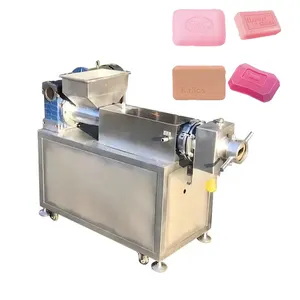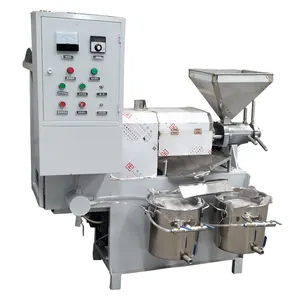Popular in your industry

































































Top categories
About tyre building drum
The tyre building drum is an indispensable tool in the tire manufacturing industry, serving as the foundational mold for creating various types of tires. These drums are designed to meet the rigorous demands of tire construction, ensuring that each tire produced is precise, durable, and meets industry standards. The tyre building drum is crucial for businesses that require a reliable and efficient means of producing tires for a wide array of vehicles, from lightweight motorcycles to heavy-duty industrial machinery.
Types and Characteristics of Tyre Building Drums
The tyre building drum market offers a spectrum of types to cater to the diverse needs of the tire industry. For instance, segmented drums are favored for their flexibility in producing a wide range of tire sizes, while non-segmented drums are prized for their simplicity and cost-effectiveness in specific tire ranges. High-precision drums are essential for performance and racing tires, where every millimeter can affect speed and stability. The characteristics of each drum type, such as diameter, segment design, and expansion capabilities, are meticulously tailored to match the tire specifications required by the industry, ensuring that each tire is built to exact standards.
Structure and Operational Components of Tyre Building Drums
The structure of a tyre building drum is a complex assembly designed for both durability and precision. At its core, the drum consists of a cylindrical body that can expand and contract to accommodate various tire sizes. The body is supported by a robust framework that houses the mechanical and electrical components responsible for the drum's operation. These include the drive motor, which powers the rotation of the drum, and the expansion mechanism, which allows the drum to adjust its diameter. Precision engineering ensures that each component works in harmony to produce tires with consistent quality.
Materials and Properties of Tyre Building Drums
The choice of materials for a tyre building drum is critical to its performance. The drum must be constructed from materials that can endure the high stress and heat of tire curing processes. Typically, drums are made from specialized steel alloys known for their high tensile strength and thermal stability. The surface of the drum is often treated or coated to resist the adhesion of rubber and to facilitate easy removal of the built tire. These material properties are not only vital for the drum's longevity but also for maintaining the quality of the tire's shape and structure during the building process.
Business Usages and Applications in Industry
Tyre building drums find their applications in a multitude of settings. In the automotive industry, they are crucial in the production of high-performance tires for cars and motorcycles. The precision of these drums ensures that tires meet the exacting standards required for high-speed and safe driving. In the heavy equipment sector, such as road construction, drums are used to produce robust tires capable of withstanding the immense loads and stresses of construction environments. The ability of these drums to produce tires that maintain integrity under such conditions is invaluable to the safety and efficiency of construction operations.
Functions and Tasks Performed by Tyre Building Drums
The tyre building drum is designed to perform several critical functions in tire manufacturing. It serves as the mold for the tire, dictating its shape and size. The drum's surface allows for the sequential application of tire components, such as the inner liner, body plies, beads, and tread. The drum's ability to expand and contract allows for the building of tires in various sizes without compromising the precision of the tire's architecture. This adaptability is essential for manufacturers who produce a wide range of tire sizes and styles.
Distinctive Features and Selling Points
One of the distinctive features of a tyre building drum is its automation capability. Advanced drums are equipped with programmable logic controllers (PLCs) that automate the tire building process, enhancing consistency and reducing manual errors. Another selling point is the quick-change mechanism that some drums offer, allowing for rapid size and type changes, which significantly reduces downtime between production runs. These features provide tire manufacturers with the flexibility to respond quickly to market demands and the ability to maintain high levels of productivity.
Benefits and Positive Outcomes for Users
Utilizing a state-of-the-art tyre building drum presents numerous benefits to tire manufacturers. The precision and efficiency of these drums lead to a reduction in material waste and an increase in production speed, directly impacting the bottom line. For the end-user, this translates to tires that offer better performance, safety, and longevity. The reliability of tires produced on high-quality drums also means fewer recalls and enhanced brand reputation for manufacturers.
How to Choose the Right Tyre Building Drum?
Choosing the appropriate tyre building drum is a decision that can significantly affect the efficiency and quality of a tire manufacturing operation. Factors to consider include the range of tire sizes to be produced, the expected production volume, and the level of automation desired. It's also important to evaluate the drum's compatibility with existing manufacturing systems, the durability of its components, and the quality of after-sales service offered by the supplier. These considerations ensure that the selected drum meets the specific needs of the tire manufacturing process and supports the operational goals of the business.
How to Maintain Your Tyre Building Drum for Longevity?
Maintaining a tyre building drum involves a proactive approach to care and servicing. Regularly scheduled maintenance should include checking for wear on the expansion mechanism, ensuring that the drive motor is functioning correctly, and inspecting the electrical systems for any signs of fatigue. Additionally, keeping the drum clean and free from rubber build-up is essential for maintaining the quality of the tires produced. Adhering to a strict maintenance schedule can prevent costly downtime and extend the operational life of the drum.
What After-sales Services Can You Expect?
After the purchase of a tyre building drum, comprehensive after-sales services are a critical aspect of the ongoing support provided to customers. These services may include on-site training for operators, regular service check-ups, and immediate technical support for troubleshooting. Access to spare parts and expert advice on maintenance and operation are also part of the after-sales support that buyers can expect, ensuring that the drum continues to operate at peak efficiency throughout its service life.





























